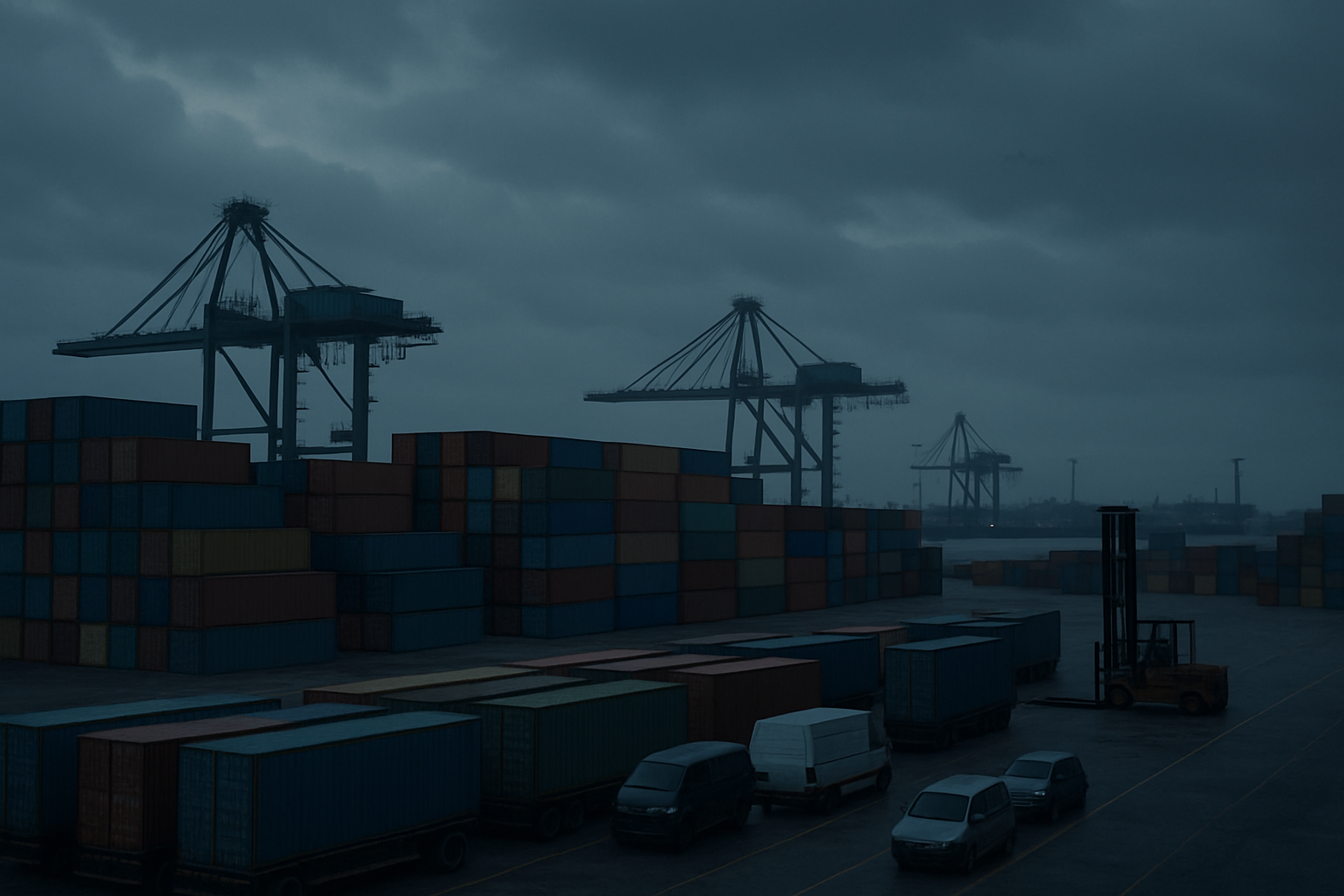The shipping world is having a moment, and not the good kind. September—traditionally when holiday goods start their grand migration to warehouses nationwide—has instead delivered a logistics landscape that's about as active as a sloth on vacation.
The latest Logistics Managers' Index just dropped a bombshell: September posted the lowest transportation utilization figure ever recorded in the index's history. That's right. Ever.
I've been tracking freight patterns since the pandemic scrambled everything we thought we knew about supply chains, and this one feels different. There's something particularly unsettling about seeing a flatline exactly when the graph should be shooting upward.
What happened? Well, it's complicated (isn't everything in this industry?). Companies essentially created their own artificial shipping boom earlier this summer—panic-buying inventory ahead of tariff deadlines like shoppers hoarding toilet paper in 2020.
"We're seeing the consequences of mass inventory front-loading," explained Maria Sanchez, logistics director at TransGlobal Freight. "Companies essentially created their own private Christmas in July, and now they're drowning in products with nowhere to send them."
The numbers tell a stark story. The LMI transportation utilization hit exactly 50.0—essentially the dividing line between growth and contraction. For perspective, the September average over the past eight years sits at a much healthier 65.1. That's not just missing the mark; that's showing up at the Olympics without remembering to train.
What makes this particularly troubling (at least for those of us who obsess over such things) is the upstream/downstream divide in the data. Upstream firms—those dealing with raw materials—reported barely-there transportation price expansion at 51.4, suggesting the slowdown isn't isolated to finished consumer goods.
Meanwhile, all that front-loaded inventory isn't just sitting around looking pretty.
It's costing money. Serious money.
Warehouse capacity remains tight nationwide, pushing inventory costs higher as goods essentially sit in expensive storage limbo. The irony would be delicious if it weren't so financially painful—companies rushed to beat tariffs only to burn their savings on storage fees instead.
Look, this is what happens when policy uncertainty collides with supply chain planning. It's like trying to navigate with a compass that randomly points south instead of north. Nobody wins.
I spoke with three logistics managers last week who all said variations of the same thing: they're playing a guessing game with billions of dollars at stake.
"We either over-order and pay storage costs or under-order and miss sales opportunities," one told me, asking not to be identified because he wasn't authorized to speak about company strategy. "There's no winning move right now."
Before anyone declares a full-blown freight recession, there are caveats (there always are). Traditionally, economists want to see at least three consecutive months of contraction before making that call. We're only at two. And downstream activity—those final movements of goods to actual consumers—might still show some life through the holidays.
But here's the thing about freight volumes—they've long been the canary in the economic coal mine. When shipping activity drops, it typically signals trouble ahead for consumer spending. And when consumer spending falters... well, you know how that particular story ends.
The periodic shipping bursts created by trade war concerns have generated what industry insiders call "phantom GDP"—economic activity that registers as growth but is really just inventory accumulation. It's economic activity without real economic value.
(Having tracked these patterns since the first round of tariffs in 2018, I've watched this movie before. The ending rarely changes.)
So what happens next? The traditional shipping peak season has apparently decided to ghost us, leaving retailers in an uncomfortable position heading into their most critical sales period.
To steal and modify an old Wall Street saying: When the trucks stop rolling, start watching your portfolio. But maybe—just maybe—this is simply the market's way of working through the artificial disruptions created by policy uncertainty.
Sometimes things just happen. Even in shipping.
